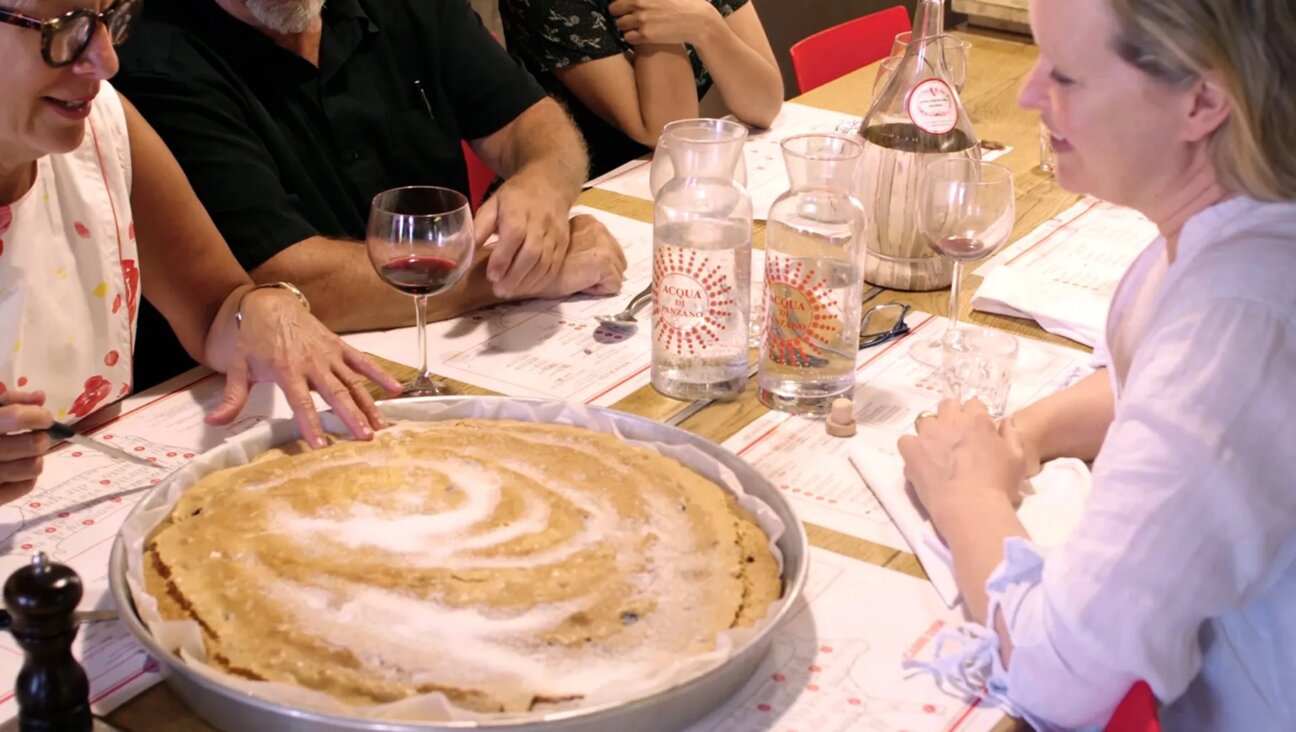Cooking the Balaboosta Cookbook

“Would You Make This?” is a sporadic column where personal chef Alix Wall evaluates a cookbook by making some of its recipes, sharing them with friends and asking what they think of the results.
“Balaboosta: Bold Mediterranean Recipes to Feed the People You Love” is a funny name for a cookbook from a chef who is 100 % Sephardic, but never mind (it means the perfect housewife in Yiddish). Written by Einat Admony, the Israeli-transplant chef who owns a restaurant and two falafel bars in New York, learned how to cook by standing at the elbow of her Persian mother. She defines the modern-day Balaboosta as follows: “She can be anyone — young or old, male or female, religious or not — who lives life with gusto, shuns fear, and relies on instinct over precision” and one who expresses “emotion… through food. Not exactly my great-grandmother’s definition of a perfect housewife, but a balaboosta all the same.”

The book, which is lovingly photographed by Quentin Bacon, has a good mix of dinner-party worthy dishes (chicken tagine), romantic dishes (lamb chops with Persian lime sauce), recipes from Israel (Eggplant salad), barbecue (harissa and honey hot wings), and even items to feed your kids (chicken littles). And that’s only some of the categories, there are more.
While Israeli recipes abound (shakshuka, falafel, sabich, hamin), so do lots of Moroccan and Persian flavors, this is not solely an Israeli or even Middle Eastern book. One could be forgiven for wondering what oysters with watermelon granita or Spanish-style shrimp are doing in here.
The cookbook came out in the fall, so I thought it was high time I took it for a test drive in the kitchen. I cooked three of the recipes for a small group of friends: Kibbeh Soup, which Einat loosely defines as an Iraqi borscht, Dorit’s Cabbage Salad, and My Homemade KitKat.
The kibbeh soup is a simple beet broth that looks like borscht, but doesn’t have the same complexity. That is, until you add the meatballs. Ground beef is mixed with onions, cumin and cinnamon and then wrapped in a semolina and rice flour dough to make dumplings, which are then simmered in the soup.
Einat has you grind jasmine rice yourself, and I wondered why I couldn’t just use rice flour, but I did as she said, using my spice grinder. I’m not sure what happened, but the dough didn’t work for us. From the beginning, it was too watery, and we needed to add more semolina and rice flour to get it to stick together. When we finally got it, it was a strange texture, in fact, resembling matzo balls, and most guests ended up picking the meatballs out of the dough, to eat them by themselves.
With that ringing endorsement, I would understand if you were saying to yourself “then why are you including this recipe?” I am doing so because the soup and meatballs were so delicious, that we didn’t care about the failed dumpling dough.
One friend said the soup was like a tonic, she would be happy eating it plain, while another said she felt the dish seemed like the perfect blend of Ashkenazi and Sephardi cuisines (the beet soup the former, and the spiced meatballs the latter).
I will definitely make this one again, perhaps without the dough, or by trying less water next time. One more recommended tip: squeeze additional lemon juice on top of the entire dish before serving. It enhances the flavors even more.
For our dinner’s side dish, I chose Dorit’s Cabbage Salad because of its intriguing mix of ingredients. I have a fondness for Terra Chips and a cole slaw that used them sounded oddly delicious, one of those recipes where you think “how did she think of that?” In this one, cabbage is tossed with grated carrots, toasted almonds and sesame seeds, scallions, and the chips, and then dressed simply. Raisins are optional.
Everyone loved this salad, with or without the raisins. It was such an unusual combination of textures and flavors. It would be a great dish to bring to a potluck. One thing to note, while many cole slaws are fine the next day, this one is not, the other elements lose their crunch, and this salad is all about the interplay of different textures (one friend said it reminded her of a salad at a nearby Burmese restaurant).
For dessert we tried Einat’s homemade KitKat bars (if you’re thinking that neither the cabbage salad nor the KitKat seem particularly Israeli, we thought the same thing). Here, Nutella is combined with Corn Flakes, chocolate and butter, and then a second layer of chocolate ganache is poured on top and refrigerated until ready.
This looked outrageously decadent, and I was waiting for the right occasion to make it. Unfortunately, we were a bit disappointed. The Corn Flakes got too soggy and therefore the bars were lacking the essential crunch. I admit I stayed away from Kellogg’s Corn Flakes, wanting to avoid GMOs, and bought an organic sprouted, gluten-free version, because it was the smallest box, but the Corn Flakes were perfectly crunchy on their own. We also ended up putting the bars in the freezer, which improved their texture, but not by much. Later, I discovered that if I put some Corn Flakes in my mouth, and then took a bite, that gave the effect we were looking for. One friend thought Rice Crispies might have retained their crunch better.
With so many good chocolate desserts out there, this is not one we would make again, but the other two recipes (minus the dumpling dough) get our full endorsements.
Beet Kibbeh Soup
Dorit’s Cabbage Salad

I hope you appreciated this article. Before you go, I’d like to ask you to please support the Forward’s award-winning journalism this Passover.
In this age of misinformation, our work is needed like never before. We report on the news that matters most to American Jews, driven by truth, not ideology.
At a time when newsrooms are closing or cutting back, the Forward has removed its paywall. That means for the first time in our 126-year history, Forward journalism is free to everyone, everywhere. With an ongoing war, rising antisemitism, and a flood of disinformation that may affect the upcoming election, we believe that free and open access to Jewish journalism is imperative.
Readers like you make it all possible. Right now, we’re in the middle of our Passover Pledge Drive and we need 500 people to step up and make a gift to sustain our trustworthy, independent journalism.
Make a gift of any size and become a Forward member today. You’ll support our mission to tell the American Jewish story fully and fairly.
— Rachel Fishman Feddersen, Publisher and CEO
Join our mission to tell the Jewish story fully and fairly.
Our Goal: 500 gifts during our Passover Pledge Drive!

























